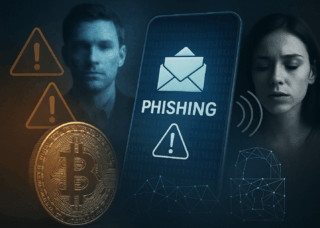Defamation—whether spoken as slander or written as libel—can irreparably damage reputations, careers, and personal relationships. If you’ve been falsely accused, taking swift action is crucial. At Privin Network, our experienced private investigators specialize in uncovering the truth and gathering evidence to protect your good name against Slander and Libel Cases. Whether you’re a public figure, a business owner, or a private individual, we provide the expertise you need to pursue justice.
Everyone from President Trump to the local gossip at your hairdresser will make claims of slander or character defamation. Unfortunately, it’s not unusual for people to be falsely accused of wrongdoing in today’s society. Sometimes, these false accusations are made by enemies or people who have a personal vendetta against you.
Deliberate defamatory statements are referred to as “slander” when spoken and “libel” when written. Anyone can be the victim of slander or libel. From high-profile cases like Johnny Depp vs. Amber Heard to everyday conflicts at work or in business, defamation is increasingly common in our connected world. Public figures and private individuals alike face the risk of slander and libel, often with devastating consequences for their reputations and opportunities.
What is Slander?
Slander is spoken defamation. It is often referred to as the “injury of reputation and it’s one of the oldest torts in American law. In fact, slander was first codified in English common law in 1577, when John Whitgift published his treatise on civil procedure.
It’s important to note that slander is a civil offense, not a criminal one. So you can sue for damages for slander, but you cannot be criminally charged with slandering someone (though some states have laws against libel).
How Does That Differ from Libel Defamation?
Libel defamation is a written offense, whereas slander is a verbal one. As a result, libel defamation cases are generally more complicated than their slanderous counterparts because they often involve more than one statement and require that you prove that the defendant made false statements of fact with some sort of malicious intent.
The good news is that once things are written, they can be copied and verified through easy-to-trace terms. That makes a libel defamation lawsuit a bit simpler in complexity and witness statements.
Why Understanding Defamation Matters to You
Being the victim of slander or libel defamation can have devastating consequences, both personally and professionally. Whether the false claims are spoken or written, they can damage your reputation, income, and relationships. Recognizing the importance of gathering accurate information is the first step in protecting yourself and deciding the best course of action.
Real-Life Scenarios Where Defamation Can Harm
Consider these examples to understand the potential impact of defamatory statements:
- Medical Professionals: Imagine being a respected surgeon accused by a former patient of having a poor success rate and being responsible for numerous deaths. Without evidence to back these claims, your professional reputation could be destroyed, leading to a significant loss of income.
- Political Candidates: A school board candidate falsely accused of sexual misconduct in a local newspaper might not only lose the election but also face serious threats to their safety and career.
- Small Business Owners: False online rumors about unethical sourcing practices—spread by someone with a personal vendetta—could lead to lost customers, tarnished relationships, and long-term financial damage.
Proving Defamation is Complex
Defamation, particularly slander, is often difficult to prove because it involves:
- Broad Interpretations: Slander can range from malicious lies to unintentional factual errors.
- Ambiguity: Statements may seem defamatory but could be protected under free speech laws like the First Amendment.
- Intent: Not all defamatory statements are made with malice; some are simply mistakes or opinions misinterpreted as facts.
Navigating the Challenges
Understanding whether you’ve been defamed requires careful consideration of the facts. For instance, it’s hard to know if you have been defamed. There are so many different ways someone can be defamed that it can be challenging to know if you have actually been the victim of slander or defamation. For example, is this slander if someone said that you stole money from them at work or called you a thief on social media? Or was it just an honest mistake? These nuances make it crucial to seek professional help in determining whether your case qualifies as slander or libel.
Additionally, perpetrators could claim that what they published is under the protection of the first amendment, like this recent Fox News case.
In either case—whether an error was made deliberately or accidentally—the end result is more confusion about whether one has been slandered versus merely insulted by another party who has acted poorly toward them without intending malice toward anyone else involved.
How Private Investigators Can Strengthen Your Defamation Case
Defamation cases can be complex, often requiring concrete evidence and credible witnesses to support your claim. Private investigators play a crucial role in navigating these challenges by employing their expertise to uncover the truth and build a solid case.
Here’s how PIs can help:
1. Evidence Collection
Private investigators specialize in gathering evidence critical to proving defamation. This may include:
- Locating written or audio proof of defamatory statements.
- Collecting social media posts, emails, or text messages that contain slanderous or libelous content.
- Conducting surveillance to document activities that support your claim.
2. Witness Identification and Interviews
One of the most challenging aspects of defamation cases is identifying and interviewing witnesses who can corroborate your story. Private investigators are trained to:
- Approach reluctant witnesses and build rapport.
- Conduct interviews tactfully to ensure accurate and admissible testimony.
- Locate individuals who may have direct or indirect knowledge of the defamatory act.
3. Online Investigations and Digital Forensics
In today’s digital world, much of the defamation occurs online. Private investigators leverage advanced tools and techniques to:
- Trace anonymous accounts posting defamatory content.
- Verify the source of online statements and establish patterns of malicious intent.
- Analyze digital footprints to build a strong case for online slander.
4. Fact-Checking Allegations
Defamation cases often hinge on disproving false claims. For example:
- If your business is accused of unethical practices, private investigators can gather data about hiring practices, financial records, or supply chain operations to refute the allegations.
- They can also investigate the accuser’s background to uncover potential motives or prior instances of false claims.
5. Collaboration with Legal Teams
Private investigators don’t work in isolation—they collaborate closely with attorneys to ensure evidence meets legal standards. Their role may include:
- Preparing detailed reports for court use.
- Providing expert testimony when needed.
- Ensuring all evidence is obtained ethically and legally to avoid disputes during the trial.
6. Tackling the Challenges of Online Slander Cases
Online slander presents unique challenges for businesses and individuals alike, primarily due to the anonymous and far-reaching nature of the internet. Unlike traditional defamation, where the source of the slander is often known, online cases can involve:
- Anonymous accounts or pseudonyms.
- Content quickly shared across multiple platforms, amplifying its impact.
- Jurisdictional issues when defamatory statements originate from another location.
Private investigators use advanced tools to navigate these obstacles. Here’s how they help:
- Tracing Anonymous Sources: Identifying the users behind defamatory posts.
- Monitoring Online Activity: Documenting instances of slander for evidence, including screenshots and timestamps.
- Collaborating with Platforms: Liaising with social media companies or web administrators to remove defamatory content or obtain critical information.
If false information about you or your business is circulating online, it’s crucial to act quickly. Privin’s experienced private investigators can help you protect your reputation by uncovering the truth and providing the evidence needed to take legal action. Working with a Private investigator for a defamation case helps you prove your claims with discretion.
Related: How Much Does it Cost to Hire A Private Investigator?
Conclusion
At Privin Network, we understand the serious impact defamation can have on your personal and professional life. Our expert investigators have years of experience in their field and are well-acquainted with local law enforcement agencies. Equipped with the tools and experience to uncover the evidence you need to build a strong case, we help you protect your reputation and take the first step towards justice.
Learn more about our slander and blackballing investigation services or Contact Privin today for a confidential consultation!
Frequently Asked Questions About Defamation Investigations
1. What is the difference between slander and libel?
Slander refers to spoken defamatory statements, while libel involves written or published defamatory statements. Both forms can harm a person’s reputation and may lead to legal consequences.
2. How can a private investigator assist in defamation cases?
A private investigator can help gather evidence by collecting recordings, screenshots, and documents. They can also locate witnesses who can corroborate your account and use digital forensics to trace online sources and analyze metadata.
3. Why is proving defamation challenging?
Proving defamation is difficult because the case often involves subjective interpretations of statements. Additionally, certain statements may be protected by free speech laws, and proving intent or malice is necessary.
4. What impact can defamation have on individuals?
Defamation can cause significant damage to both personal and professional reputations. It can also lead to emotional distress, mental health issues, and loss of business opportunities or clientele.
5. What tools do private investigators use in defamation cases?
Private investigators use a variety of tools in defamation cases, including surveillance equipment to monitor defamatory actions, social media analysis to track online posts and interactions, and legal databases to access public records and court documents.






